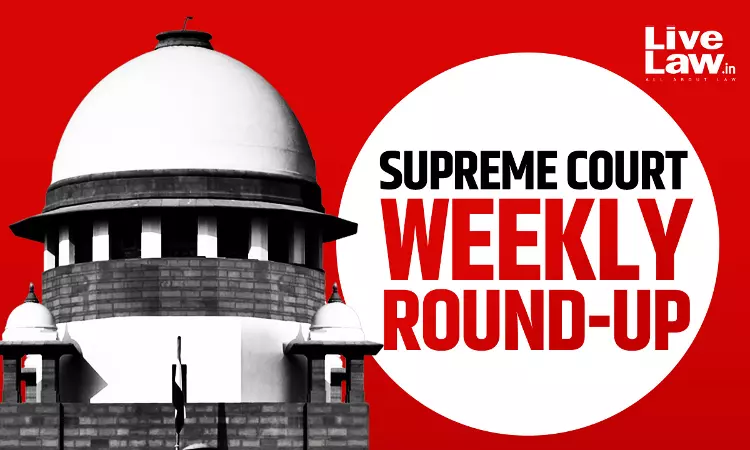Supreme Court Weekly Round-up: October 7, 2024 To October 13, 2024
Gursimran Kaur Bakshi
13 Oct 2024 4:16 PM IST

Next Story
13 Oct 2024 4:16 PM IST
→'Acknowledge Women's Struggles In Occupying Public Offices': Supreme Court Flags Discriminatory Attitude Towards Women RepresentativesMANISHA RAVINDRA PANPATIL VERSUS THE STATE OF MAHARASHTRA & ORS., 2024 LiveLaw (SC) 783While granting relief to a female Sarpach of a village who was disqualified on technical grounds, the Supreme Court raised concerns about the discriminatory...
